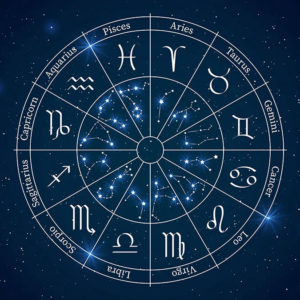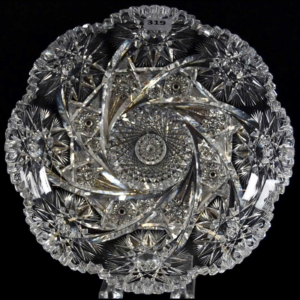Muscovite stone – properties, virtues & benefits
Muscovite stone is a mineral prized for its pearly brilliance and ability to divide into fine leaves. Used in jewelry and lithotherapy, it is also known for its soothing properties and aid to meditation. Discover the characteristics of this fascinating stone and how to incorporate it into your daily life.
MUSCOVITE CHARACTERISTICS
- Chakra: Third eye, Crown.
- Properties: Soothing, promotes meditation, encourages introspection, enhances self-confidence and understanding of others.
- Astrology: Mercury.
- Zodiac: Gemini, Virgo.
- Elements: Earth and Air.
- Colors: Colorless, silvery white, brown, pale green.
- Hardness: 2.5 to 4 on the Mohs scale.
- Chemical Formula: KAl2(AlSi3O10)(OH)2.
- Associated god: None.
MUSCOVITE – HIS HISTORY
In 1850, mineralogy expert James Wight Dana was the first to describe muscovite. It’s a mineral belonging to the silicates, phyllosilicates and micas family, which is divided into two groups: white mica and black (biotites). Muscovite is a type of white mica, rich in potassium and aluminum, and its name derives from the Latin “vitrum muscoviticum” (Moscow glass). Indeed, at the end of the 18th century, muscovite was used in Siberia to manufacture glass objects such as windows, lanterns, furnaces, ship portholes and so on. Although this use has been lost, the use of the stone goes back much further. The Hopewells, the first American Indians, used muscovite to make jewelry and decorative and sPiritual objects as early as the 2nd century B.C., including the famous “Hopewell hand”. Mayan and Aztec shamans in South America also used muscovite to communicate with the afterlife, and it’s even said that a layer of mica was placed under the Teotihuacan pyramid.
Nowadays, muscovite is known for its thermal, mechanical and dielectric properties. It is used in advanced equipment such as rockets, missiles or transmission satellites due to its high thermal resistance. It is also used in the manufacture of diaphragms for oxygen masks, X-ray equipment and brake pads, as well as in rubber, ceramics, plaster, jewelry and many others. In lithotherapy, muscovite is associated with the feminine and the heart chakra. It is used for divination and to restore self-confidence. It can be used in association with other stones such as jasper, tiger’s eye, sunstone or moonstone.
MUSCOVITE STONE – ITS ORIGIN AND COMPOSITION
Muscovite is the most common mineral in the mica family, being a prismatic hydroxyl silicate composed mainly of aluminum and potassium with traces of other elements such as chromium, lithium, iron, vanadium, manganese, magnesium, sodium, cesium, rubidium, calcium and water. Its chemical formula is Kal2(AlSi3O10)(OH,F), with a hardness of 2 to 2.5 and a density of 2.8 to 2.9.
Muscovite stone is often colorless or white, silvery, yellow or pale brown, with a characteristic cleavage into elastic sheets. Muscovite comes in different varieties such as fuchsite (green, containing chromium) or sericite (formed during retrograde metamorphism of feldspars, topaz, kyanite, spodumene and andalusite). It occurs mainly in granites, granitic pegmatites and felsic igneous rocks, as well as in metamorphic rocks.
Muscovite is geologically widespread throughout the world, with deposits in India, Brazil, Madagascar, Canada, Sweden and France. The best-known deposits are on the island of Groix in Brittany (Fuchsite variety) and on the Monts d’Ambazac in Haute Vienne. However, the finest crystals come from Afghanistan. Muscovite is used in many fields, such as lithotherapy, the manufacture of high-tech equipment, rubber, ceramics, plaster, jewelry, and many others.

MUSCOVITE – VERTUS ET PROPRIÉTÉS
PSYCHOLOGICAL MUSCOVITY
In lithotherapy, muscovite stone is used to lock the chakras and protect against external influences on the psychic level. It is associated with the heart chakra and feminine power, making it a useful stone for reducing stress, eliminating complexes and restoring self-confidence. Muscovite can help you gain self-awareness and face up to your inner problems. It can also serve as a mirror to reveal what’s disturbing in oneself and others, facilitating profound inner transformation. It can be used in combination with other stones such as jasper, tiger’s eye, sunstone or moonstone.
Muscovite is associated with the astrological sign Leo and is commonly used in clairvoyance and divination to facilitate communication with guardian angels. It can also protect people’s auras from malicious attack by creating a strong psychic barrier.
PHYSICAL MUSCOVITY
Minerals such as muscovite are known for their DNA restructuring capabilities. Muscovite contains potassium, which can help reduce stress and relieve muscle pain and weakness. It can also help regulate pancreatic secretions and blood sugar levels, as well as treating dehydration, sleep disorders, allergies and gastric, biliary and kidney problems.

MUSCOVITE – CLEAN AND RECHARGE
To clean Muscovite stone, you can use several methods:
- Salt water: Soak the stone in salt water for several hours, then rinse under running water.
- Fumigation: Smoke the stone with sage, palo santo or incense and leave it in the smoke for a few minutes.
- Earth: Bury the stone in earth for several hours or overnight.
To recharge the Muscovite stone, you can use the following methods:
- Exposure to sunlight: Place the stone in the sun for a few hours.
- Exposure to the moon: Place the stone outdoors during the night of a full or new moon.
- Crystal clusters: place the stone on a crystal cluster such as an amethyst geode or clear quartz for several hours or an entire night.
Make sure to clean and recharge your Muscovite stone regularly to keep its energetic properties effective.
WHERE DOES THE NAME MUSCOVITE COME FROM?
The name “muscovite” comes from the city of Moscow, Russia, where the stone was first discovered in the 1700s. Muscovite is a type of mica found in igneous and metamorphic rocks around the world, but the initial discovery of this stone was made in Russia and the name was given in reference to this place of discovery. Muscovite is also known by other names, including white mica, potassic mica or mica leaf.
WHICH CHAKRA DOES MUSCOVITE ACT ON?
Muscovite acts primarily on two chakras, the third eye chakra (or Ajna) and the crown chakra (or Sahasrara).
The third eye chakra is located on the forehead and is associated with the ability for extrasensory perception, intuition, mental clarity and inner wisdom. Muscovite can help open and stimulate this chakra, enabling deeper meditation, enhanced intuition and greater self-understanding.
The crown chakra is located at the top of the head and is associated with higher consciousness, sPiritual connection and universal understanding. Muscovite can help balance and activate this chakra, helPing to amplify sPiritual awareness, promote mental clarity and encourage a deeper understanding of our place in the universe.
WHICH ASTROLOGICAL SIGN IS ASSOCIATED WITH MUSCOVITY?
Muscovite is associated with the zodiac signs Gemini and Virgo. Geminis are known for their intellectual curiosity, flexibility and ability to communicate clearly. Muscovite can help Geminis strengthen their intuition and self-understanding, while promoting clear communication and self-confidence.
Virgo is associated with precision, practicality and detailed analysis. Muscovite can help Virgos balance their analytical thinking with intuitive understanding, promoting greater self-understanding and more effective use of their analytical skills.
SUMMARY OF THE MUSCOVITE STONE
Muscovite stone is a mineral of the mica family, which is commonly used in the construction, metallurgy and electronics industries. It is also used in the manufacture of cosmetics and skin care products due to its reflective and absorbent properties.
Muscovite comes in the form of thin, translucent sheets that separate easily from one another. It is composed mainly of aluminum and potassium silicate, and may contain traces of iron, magnesium and lithium.
Because of its ability to divide into very thin sheets, muscovite is used as an insulating material in electrical and electronic equipment. It is also used as a building material for its flame-retardant and heat-resistant properties.
In addition, muscovite has uses in the cosmetics industry as an absorbent powder for skin care products and cosmetics, as well as in the paint industry as a white Pigment.
In summary, muscovite stone is a versatile mineral with a wide range of uses in the construction, metallurgy, electronics, cosmetics and paint industries.

